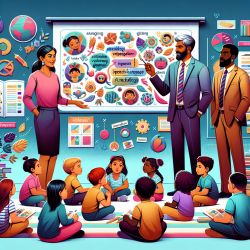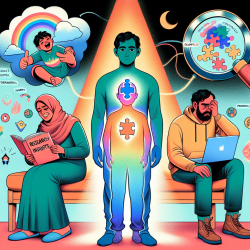Introduction
The COVID-19 pandemic has been a global challenge, demanding extraordinary efforts from healthcare professionals worldwide. In this context, the role of prosocial modeling, particularly by faculty members, has emerged as a significant factor influencing medical students' career commitment. A recent study titled "Prosocial modelling matters: the association between parent and faculty involvement in fighting COVID-19 with medical students’ career commitment" sheds light on this critical aspect of medical education.
Understanding Prosocial Modeling
Prosocial behavior, actions intended to benefit others, is a key element in shaping professional commitment among medical students. The study conducted by Wang et al. (2022) explored how the involvement of parents and faculty in the fight against COVID-19 influenced medical students' intention to pursue a medical career. With a sample size of 99,559 undergraduate students from mainland China, the study provides robust empirical evidence on the impact of role models.
Key Findings
- Faculty Influence: The study found that faculty involvement in COVID-19 efforts had a stronger association with students' career commitment than parental involvement. Faculty members who participated in pandemic-related activities served as powerful role models, inspiring students to pursue medical careers.
- Gender Differences: Male students were more influenced by faculty involvement than female students, highlighting the need for targeted role modeling strategies.
- Prior Commitment: Students who had already decided to pursue a medical career before the pandemic were more likely to be influenced by faculty involvement, reinforcing their commitment.
Implications for Practitioners
For practitioners in the field of medical education, these findings underscore the importance of faculty as role models. By actively participating in prosocial activities and demonstrating commitment to their profession, faculty members can significantly influence students' career choices. Here are some actionable steps practitioners can take:
- Encourage Faculty Engagement: Promote and support faculty involvement in community health initiatives and pandemic response efforts.
- Highlight Faculty Achievements: Share stories of faculty members' contributions during the pandemic to inspire students.
- Mentorship Programs: Develop mentorship programs that connect students with faculty role models to foster career commitment.
Conclusion
The study by Wang et al. (2022) provides valuable insights into the role of prosocial modeling in medical education. By recognizing and leveraging the influence of faculty as role models, educational institutions can enhance students' commitment to pursuing medical careers. This approach not only benefits students but also contributes to addressing the global shortage of healthcare professionals.
To read the original research paper, please follow this link: Prosocial modelling matters: the association between parent and faculty involvement in fighting COVID-19 with medical students’ career commitment.










